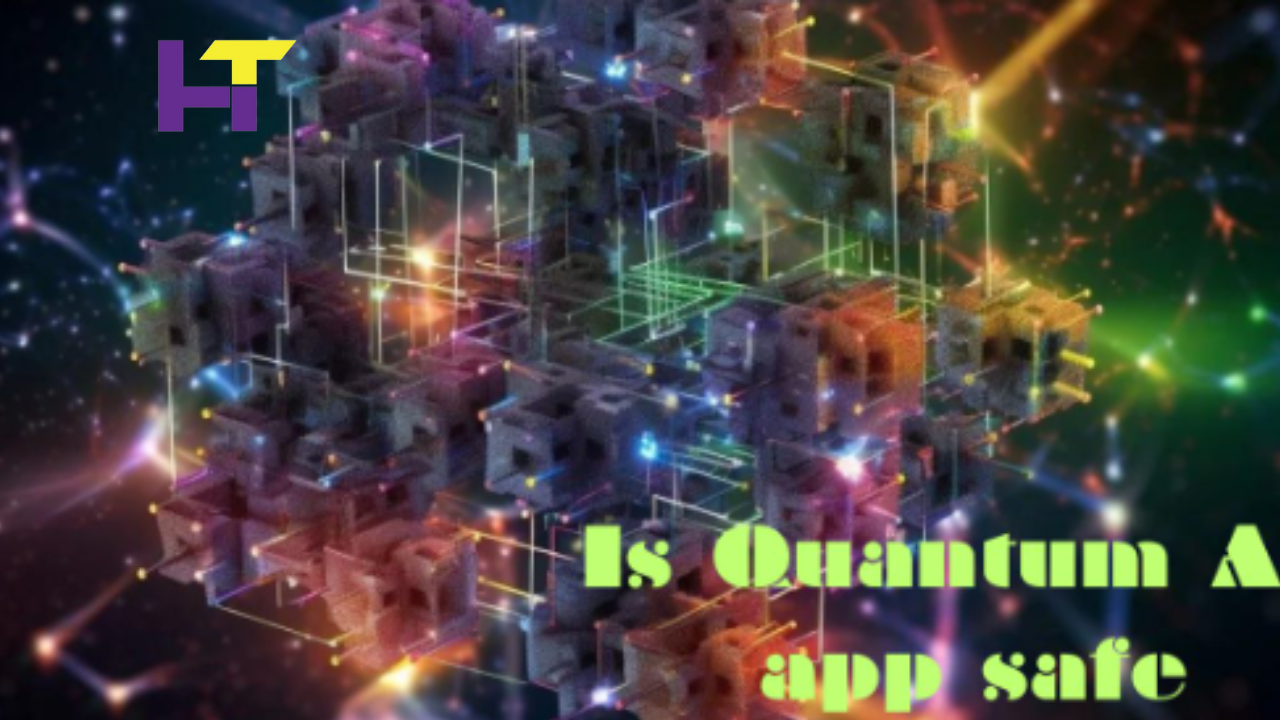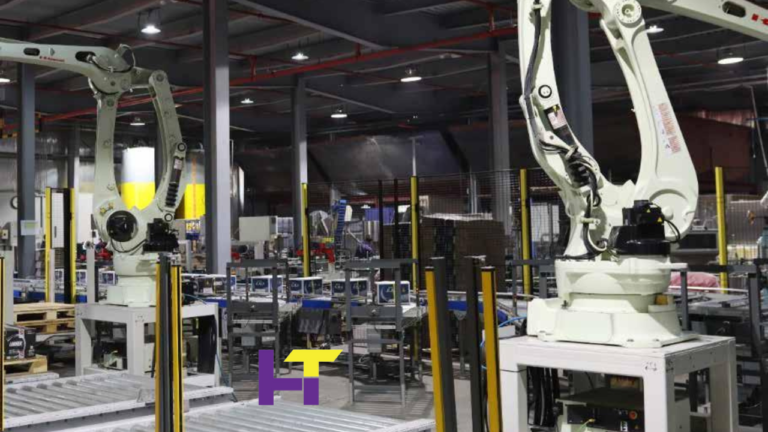Unleashing Google’s Quantum AI Potential

In the contemporary era, quantum computing stands as a beacon of innovation, promising remarkable computational energy and the capacity to remedy complicated troubles that can be past the reap of classical computer systems. At the forefront of this revolution is Google, a massive multinational tech company that has released right into a pioneering adventure in quantum computing.
With great investments and a dedicated crew of researchers, Google has been spearheading efforts to harness the strength of quantum mechanics to construct practical quantum computer systems. This bold undertaking is rooted inside the fundamental ideas of quantum physics, which allow quantum bits, or qubits, to exist in more than one state simultaneously, exponentially growing computational ability and providing the capacity to address demanding situations starting from cryptography to drug discovery.
The improvement of quantum computing technology is a complicated and multifaceted procedure, requiring breakthroughs in substance technology, engineering, and computational principles. Techniques for quantum AI computing include designing and fabricating qubits and using superconducting circuits, which are probably meticulously cooled to near absolute zero to take advantage of quantum results.
One of hallmarGoogle’s computing initiatives is its commitment to openness and collaboration. Through structures like the Quantum AI campus and partnerships with leading instructional establishments, Google has fostered a colorful ecosystem of research and innovation in quantum computing. This collaborative technique has caused substantial improvements in hardware layout, error correction, and set of rules development, paving the way for realistic packages of quantum computing in fields of collective optimization, system mastering, and chemistry.
However, the direction to figuring out the entire quantum computing capacity is fraught with challenges. Quantum structures are inherently fragile and vulnerable to noise and mistakes that could compromise computational accuracy. Overcoming these demanding situations calls for state-of-the-art mistake correction techniques, robust hardware layouts, and novel algorithms tailored to the unique traits of quantum systems.
Despite these limitations, the progress made by Google and other enterprise leaders in quantum computing is not quick or excellent. From achieving quantum supremacy – demonstrating quantum computational benefit over classical PC structures – to exploring novel quantum algorithms and packGoogle’packGoogle’sopackGoogle’sogle’suting continues to push the bounwhat’swbounwhat’swhabounwhat’swhat’snof computation.
As we embark on this exploratiGoexploratiGoogexploratiGoogle’sogle’suting, we invite you to enroll us in unraveling the mysteries of quantum mechanics and uncovering the transformative ability of this groundbreaking generation.
Google’s QuGoogle’sl’QuanGoogle’suting
Google’s foGoogle’s’foraGoogle’suantumicompisn’t’isncompisn’taisn’tyinterest but a deeply invested initiative that spans numerous yearsemployyearsemployeryearsemployer’soyer’sois evident from its established order of dedicated research groups, strategic partnerships, and considerable financial investments.
Origins and Motivation
The origiGoogleorigiGoogle’sogle’suting may be traced back to the company’sptcompany’spantcompany’spany’sfaints of classical computing in fixing positive instructions for problems. While immensely influential, traditional computers face inherent constraints when tackling cooptimizationzation, cryptography, and simulation tasks. Quantum computing, with its promise of exponentially faster computation via the thoughts of superposition and entanglement, presented a compelling opportunity.
Motivated by the resource of the capability transformative impact of quantum computing, Google began assembling a team of physicists, engineers, and PC scientists to find out this frontier. This group housed iGoogliGoogle’sogiGoogle’sogle’sogle’sogleartmentskedgrowing the hardware, software, and algorithms necessary for sensible quantum computer systems.
Research Facilities and Collaborations
CentrGoogleCentrGoogle’sCentrGoogle’sogle’suting is its cutting-edge studies facilities, equipped with current laboratoriespecializedalised devicescorpdevicescorpordevicescorporation’stion’sampusn Santa Barbara, California, serves as the epicenter of its quantum research efforts. Here, scientists and engineers tirelessly design and fabricate the characterizing of quantum processors and gadgets.
Moreover, Google acknowledges the significance of collaboration in advancing the quantum computing organization and has forged strategic partnerships with leading educational institutions, including universities and research labs, to leverage collective know-how and resources. Collaborative projects, including the Google Quantum Research Awards program, offer funding and aid to instructional researchers working on quantum computing-related initiatives.
Hardware Development: Building Quantum Processors
A cornerstoGocornerstoGoogle’sogcornerstoGoogle’sogle’sinitiativeelopment of quantum processors capable of acting complex computations. These processors depend upon qubits – the fundamental gadgets of quantum statistics – to encode and manipulate statistics. Unlike classical bits, which can exist in one of every state (0 or 1), qubits can exist simultaneously in a superposition of each state, permitting parallel computation.
Google’s meGoogle’squanGoogle’quanGoogle’swareound using superconducting circuits, which show off quantum behavior at extremely low temperaturesorganizationzation, has made massive strides in fabricating qubits with lengthy coherence instances – a measure of the way long quantum records may be preserved, minimizingmizing errors through advanced error correction strategies.
Software and Algorithm Development
In parallel with hardware development, Google is actively engaged in laying out and implementing quantum algorithms and software program gear. Quantum algorithms leverage the specific properties of quantum structures to resolve computational troubles more efficiently than classical algorithms. Google’s QaGoogle’sgQalgoriGoogle’sogle’stg edge of growing novel quantum algorithm optimization, system studying, cryptography, and different packages.
Moreover, Google has created software program frameworks and programming languages tailor-made to quantum computing, which include Cirq and TensorFlow Quantum. This equipment permits researchers and builders to simulate quantum circuits, design quantum algorithms, and experiment on quantum hardware or simulators.
Achievements and Milestones
Google’s quGoogle’smputing Google Has numerous extraordinary achievements and milestones, demonstrating development closer to realistic quantum computing. In 2019, the agency achieved quantum supremacy – a landmark feat in which a quantum processor accomplished a project that would be nearly infeasible for classical computers.
Additionally, Google has improved quantum error correction, simulation, and networking. These achievements underscore the busenterpribusenterprise’srise’stpositbusenterprise’srise’sge computing research and its dedication to pushing the bounwhat’swbounwhat’swhat’sbounwhat’swhat’sative field.
Architecture and ComponenGooComponenGoogle’sogle’sCmputers
Google’s quGoogle’smputer sGoogle’sresGoogle’sre engineering, constructed upon the ideas of quantum mechanics and leveraging superior technology to govern and manipulate quantum bits (qubits). Understanding the structure and components of those quantum computer systems is critical to appreciating their talents and capacity.
Cryogenic Cooling Systems
To keep the sensitive quantum states of superconducting quGoogle’soquGoogle’sogle’squGoogle’coquGoogle’sogle’sependenic cooling systems. These systems include dilution refrigerators, which may cool the qubits to temperatures near absolute 0 (approximately -273 Celsius).
Cryogenic cooling systems are criticizing the minimization of thermal noise and decoherence, which could disrupt the quantum states of the qubits, by running at extremely low temperatGootemperatGoogle’sogle’sequantutemperatGoogle’sogle’senvironmentto lengthy coherence times and excessive-constancy quantum operations.
Control Electronics and Signal Processing
Controlling and manipulating qubits in a quantum PC requires particular management electronics and sign-processing capabilities. Google has developed state-of-the-art management structures that can generate microwave pulses with picosecond precision to control the quantum states of the qubits.
These manipulated structures interface with the qubit chips through manipulated strains and microwave resonators, supplying the vital management indicators for acting quantum operations. Additionally, sign processing algorithms are hired to calibratoptimize the performance of the quantum hardware, ensuring excessive-fidelity quantum computation.
Quantum Error Correction
Quantum computers are inherently liable to mistakes because of environmental noise and hardware imperfections. To mitigate these mistakes and improve the reliability of quantum computations, Google has invested in quantum mistake correction techniques.
One approach to quantum error correction involves encoding logical qubits in larger blocks of bodily qubits and using error-correcting codes, including surface codes. Google researchers have established the encoding and decoding logical qubits and using surface codes, paving the way for fault-tolerant quantum computation.
Integration and Scalability
As Google keeps improving its quantum computing generation, efforts are underway to enhance integration and scalability. Integrating more qubits onto an unmarried chi and optimizing the control electronics are vital objectives to boost the computational power and efficiency of Google’s’s Google’sm computer systems.
Conclusion
IconcluGooglconcluGoogle’sogle’scomputininiticoncluiniticoncluGoogle’sogle’sugehe in the quest for practical quantum computation. Through committed research, strategic partnerships, and substantial investments, Google has located itself at the vanguard of this transformative discipline.
The journey into quantum computing has been marked by numerous achievements and milestones, from the demonstration of quantum supremacy to advancements in hardware development, software program tools, and quantualgoriGooglalgoriGoogle’sogle’sm qubits, cryogenic cooling systems, and complex manage electronics, encompass the slicing-edge of quantum technology.
Looking in advance, the capability impact of quantum computing is considerable, and as a ways-accomplishing revolutionizing cryptograph optimization to accelerate drug discovery and materials science, quantum computers preserve the promise of tackling some of the most pressing challenges facing society.
Read More: Quantum Supremacy and its Effect on Monetary Marketplaces: The Paradigm Change of Quantum AI.






